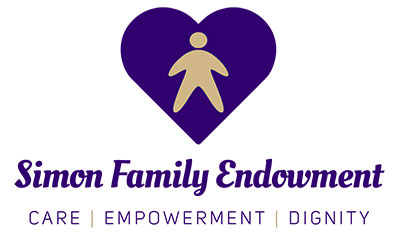New Support Program for Adults Affected by Autism, Other Developmental Challenges
A new community program launched in collaboration with the University of Washington Tacoma will fill critical gaps in services for adults affected by Autism Spectrum Disorders and intellectual disabilities.

A new community program launched in collaboration with the University of Washington Tacoma will fill critical gaps in services for adults affected by Autism Spectrum Disorders (ASD) and intellectual disabillities.
Services for youth affected by ASD and intellectual disabilities suddenly decrease or go away entirely when they leave high school or “age out” of public support on their 18th birthday. A majority of these young adults continue to rely on their families for support during their transition into adulthood. For most families, fully funding the continuation of services and supports is not feasible. Families often have little to no access to resources, knowledge or skills to replace the services lost.
The program is funded through an endowment established at UW Tacoma with a one-million-dollar gift from the Simon family. The goal is to double this endowment to two million dollars and later to upwards of $5 million.
“Imagine finding the support network that has helped you navigate through your life suddenly disappear after your 18th birthday. For people and their families, the loss of public support can be devastating. This program, thanks to the Simon family, will help our community and region take a significant step toward addressing this problem,” said UW Tacoma Chancellor Mark A. Pagano.
Leslie Kinkade, Associate Vice Chancellor for Advancement, who has supported the Simon family in creating the endowment noted, “For families and care providers we know individuals diagnosed with ASD are capable of many things—including significant educational and career achievements. To realize fully these assets, we need to prioritize the building of a community-wide system of sustainable services and supports for adults affected by ASD and intellectual disabilities. This generous endowment, made possible by the Simon family, will fuel this vital and transformative effort.”
The new program was announced at a March 19 news conference at UW Tacoma with U.S. Senator Patty Murray (D-WA), the ranking member of the Senate Committee on Health, Education, Labor and Pensions.
“The Simon Family Endowment marks an exciting new chapter for UW Tacoma that will help ensure everyone feels welcome in our communities and has the necessary support to thrive. As a voice for our state in the Senate, I will continue fighting for exactly the kind of progress this endowment represents,” said Senator Murray.
The program has three components:
- Simon Fellows – Fellowships for students in a Master of Social Work practicum to develop knowledge and skills in serving adults affected by ASD and intellectual disabilities. In its first year, the endowment is funding two students:
- Katie Carroll is a Simon Family Endowment Fellow and will earn her Master’s degree in Social Work at UW Tacoma in June 2019. She completed her field practicum with the State of Washington’s Division of Developmental Disabilities Administration (DDA). She was recently hired by DDA as a case resource manager serving adults with developmental and intellectual disabilities in Pierce County.
- Taylor Saunders is a Simon Family Endowment Fellow and will earn her MSW at UW Tacoma in June 2020. She will complete her field practicum with the Valley Cities Behavioral Health Agency in March 2019. As a practicum student, she provided direct services to developmentally disabled adults who live with behavioral health disorders.
- Scholarships – The second component of the program provides scholarship support for UW Tacoma students affected by ASD and intellectual disabilities.
- Lifelong Learning and skills enhancement – The third component is a lifelong-learning and skills-enhancement program that will include a series of workshops and courses to help students with ASD and other developmental challenges master social and emotional skills, professionalism in the work place, career advancement and a range of other skills to enable them to live productive lives.



